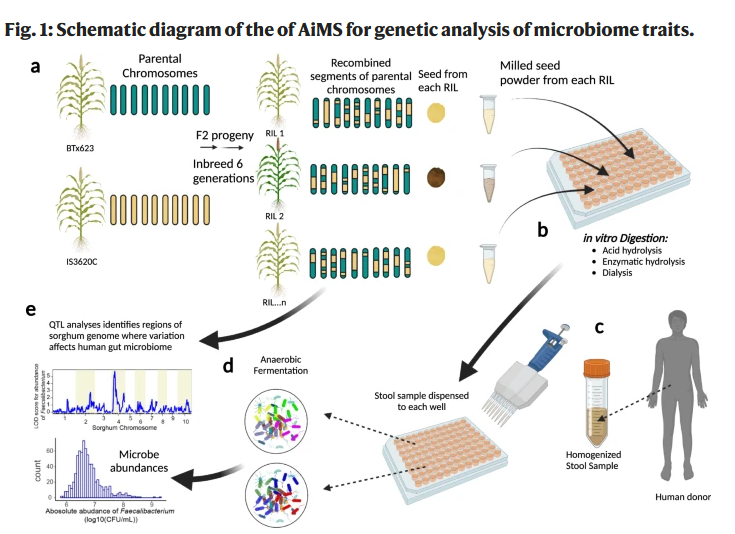|
Genetic analysis of Sorghum bicolor affect the human gut microbiome
Lincoln, Nebraska, USA
September 26th, 2022

Each of us walks around with trillions of living microbes in our gut. Din the kinds and abundance of microbes living in our gut are connected to our health and well-being. But as scientists learn more and more about which microbes are associated positive and negative impacts on human health, a key question has remained unanswered: how do we change our own microbiomes?
The answer may be in the food we eat. Different foods, made from different crops contain a varity of fibers, polyphenols and other natural compounds that can influence the abundance of different microbe within the human gut.
In a recent study from the laboratory of Dr. Andrew Benson that was led by Dr. Qinnan Yang, scientists at the Nebraska Food for Health Center demonstrate that natural genetic variation within crop plants can play a major role in controlling growth in specific organisms in the human gut microbiomes.
The study findings are published in the journal Nature Communications.
Source: Genetic analysis of seed traits in Sorghum bicolor that affect the human gut microbiome
More news from: University of Nebraska
Website: http://www.unl.edu Published: September 29, 2022 |
|
The news item on this page is copyright by the organization where it originated
Fair use notice |